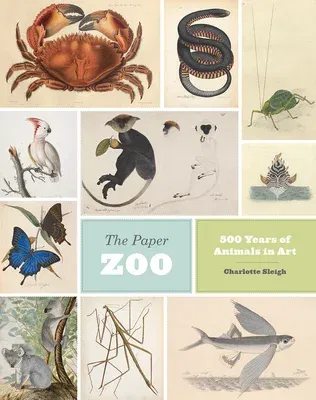As children, our first encounters with the world's animals do not arise
during expeditions through faraway jungles or on perilous mountain
treks. Instead, we meet these creatures between the pages of a book, on
the floor of an obliging library. Down through the centuries,
illustrated books have served as our paper zoos, both documenting the
world's extraordinary wildlife in exquisite detail and revealing, in
hindsight, how our relationship to and understanding of these animals
have evolved over time.
In this stunning book, historian of science Charlotte Sleigh draws on
the ultimate bibliophile's menagerie--the collections of the British
Library--to present a lavishly illustrated homage to this historical
collaboration between art and science. Gathering together a breathtaking
range of nature illustrations from manuscripts, prints, drawings, and
rare printed books from across the world, Sleigh brings us face to face
(or face to tentacle) with images of butterflies, beetles, and spiders,
of shells, fish, and coral polyps. Organized into four themed
sections--exotic, native, domestic, and paradoxical--the images
introduce us to some of the world's most renowned natural history
illustrators, from John James Audubon to Mark Catesby and Ernst Haeckel,
as well as to lesser-known artists. In her accompanying text, Sleigh
traces the story of the art of natural history from the Renaissance
through the great age of exploration and into the nineteenth century,
offering insight into the changing connections between the natural and
human worlds.
But the story does not end there. From caterpillars to crabs, langurs to
dugongs, stick insects to Old English pigs; from the sinuous tail
feathers of birds of paradise to the lime-green wings of New Zealand's
enormous flightless parrot, the kakapo; from the crenellated plates of a
tortoise's shell to imagined likenesses of unicorns, mermaids, and
dinosaurs, the story continues in this book. It is a Paper Zoo for all
time.

